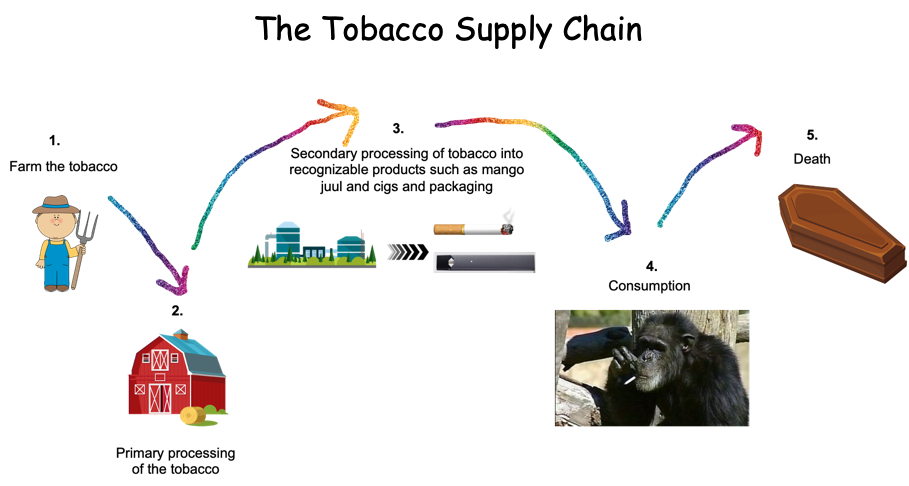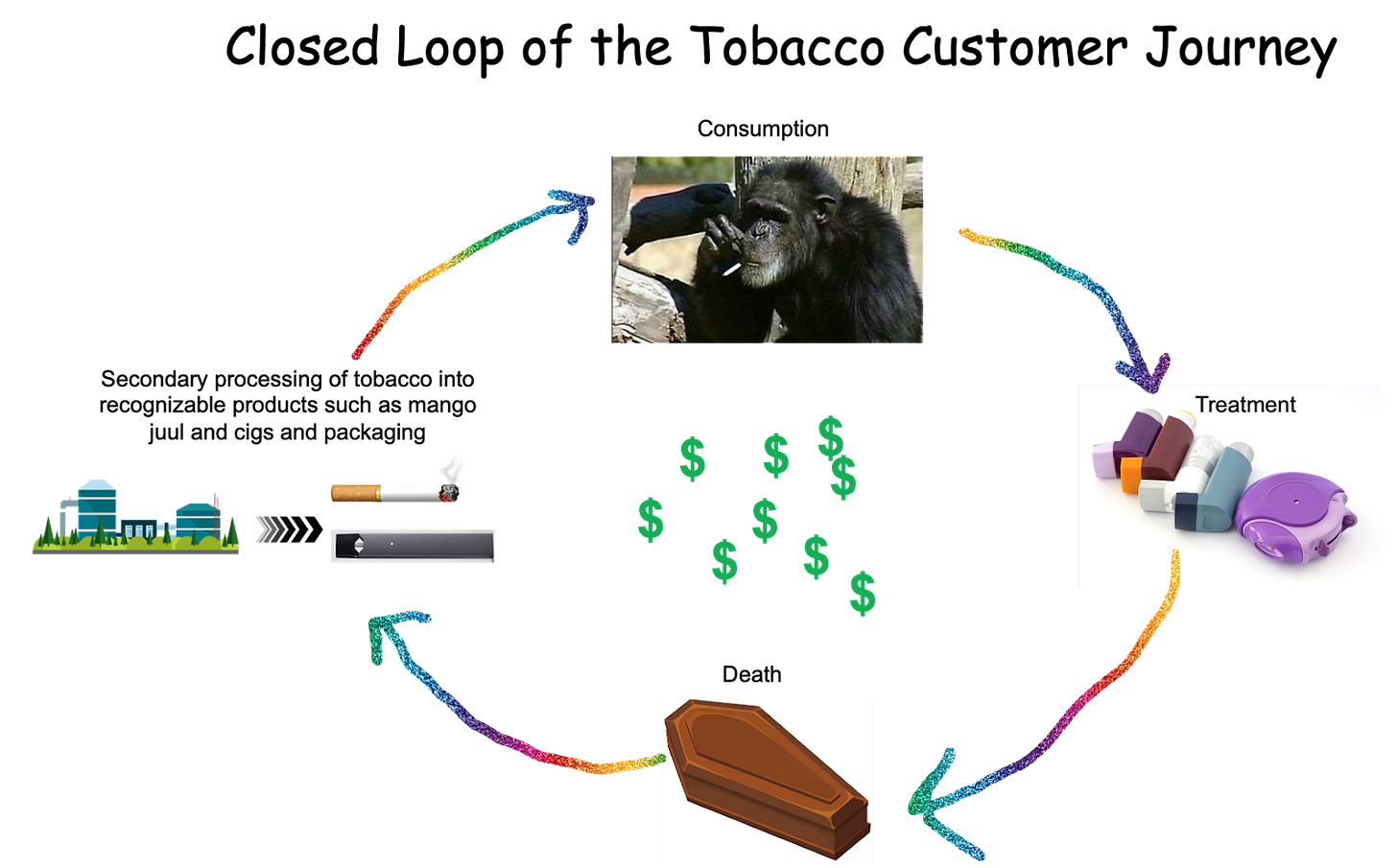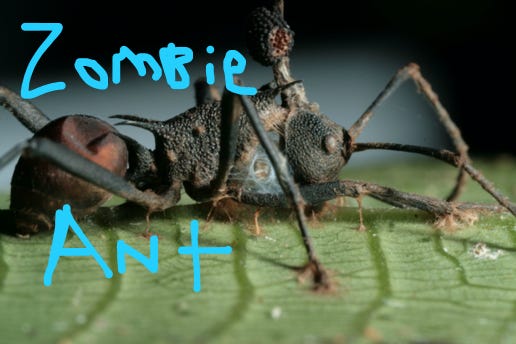What's the point of a company?
Philip Morris is attempting to purchase a respiratory illness treatment company, let's talk about it.
Think this writing is decent? Forward the email to a friend or share it on social media. If you’re new here, subscribe for more.
The tobacco supply chain is fairly simple. Philip Morris International (PMI), and tobacco conglomerates in general, focus mostly on steps 3-5 above. More or less, the companies are there from the beginning of the customers’ consumption journey to its end: from tobacco’s creation into a consumable product (#3) to its consumption (#4).
Sometimes, tobacco users become ill as a direct result of their years of tobacco consumption. The onset of these illnesses are the beginning of another smoking-related supply chain, albeit one without tobacco. Be it heart disease or emphysema, remedies for illnesses require the production of machines and medicines, not to mention whatever composes the murky supply chain of the insurance industry.
PMI is no different than any other multinational corporation--it wants to fatten margins, increase revenues, achieve cost savings, etc. In pursuit of these goals, it’s attempting to purchase Vectura, a pharma company focused on the creation of inhalable treatments for respiratory illnesses. Some of the illnesses Vectura creates products to treat are those caused by long-term use of tobacco products.
The attempt reveals that at a certain scale, customer satisfaction, happiness, enjoyment, whatever you want to call it--traditionally a major part of the means which produce profit’s ends--are no longer part of the equation. Instead, like gluttonous blue whales, jaws unhinged coasting for krill, these firms suck up dollars by any means necessary.
Philip Morris is attempting to trap more revenue by adding a portion of the smoking illness treatment supply chain. Should the deal go through, the supply chain wouldn’t end once the ciggie’s finished, it’d end once the smoking-induced disease gets treated (or when the patient dies). By adding Vectura, PMI is closing the loop on ownership of the tobacco customer journey--from birth of the cigarette to death of the consumer.
The acquisition is like The Hershey Company purchasing an insulin manufacturer. Creating the disease opens the loop and supplying its treatment (or at least some treatments) closes it. When a loop is closed, revenue can’t escape as easily--it’s surrounded on all sides. Less escaped revenue means more for the firm in ownership of the loop.
Lest you think this is some anti-smoking, anti-tobacco industry screed, it’s not. PMI isn’t the first conglomerate that’s expanded well outside of its sweet spot to enhance its bottom line. General Electric has at various points acquired all sorts of companies ranging from NBC all the way to oil and gas companies. Michelin, purveyor of tires, also rates restaurants, amongst other things.
What makes this so blatant is PMI’s products are notoriously known to harm its users in a way that say, Levi’s isn’t. PMI isn’t the first company to attempt this strategy. Nestlé doesn’t only bottle water and sell it back to consumers, in many locales, its plants create conditions for droughts, thereby exacerbating the need for water and being there when it comes time for people to purchase it.

In this context, branding becomes just a cover, an excuse, something put onto the money vacuum to distract us from being the prime targets of its suction end.
The uniquely harmful aspect of PMI’s products put into relief just how little the means of making money matter. Despite this, I remain faithful that the vast majority of PMI employees have no interest in harming customers or exploiting their tobacco-related illnesses to achieve a better bottom line. Yet, once a company reaches a certain scale--and it’s not clear to me yet what this scale is--the hive mind takes over. At that point, the company starts to operate as a parasite that’s taken over the host body, only if the host body were each employee, moving in concert.
Whether it’s a Juul, a Marlboro, or a can of Kodiak snuff, once a company sells the problem and the solution, the brand no longer matters. Each just serves to widen the hose of the vacuum tube and fill the bag it feeds into.
If you enjoyed this, forward the email along to a friend. If you liked it, show it. Subscribe.







